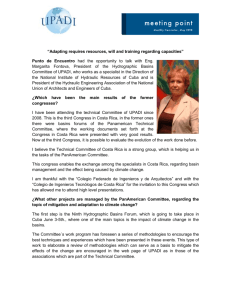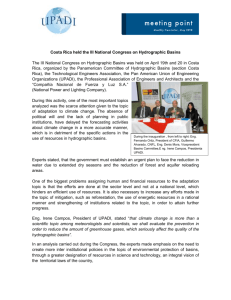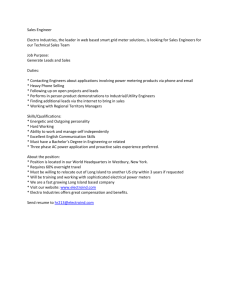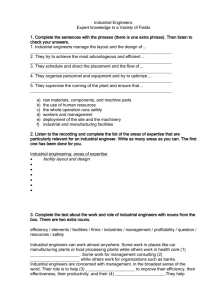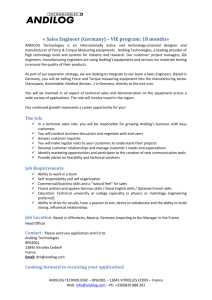More info - Colegio Federado de Ingenieros y Arquitectos
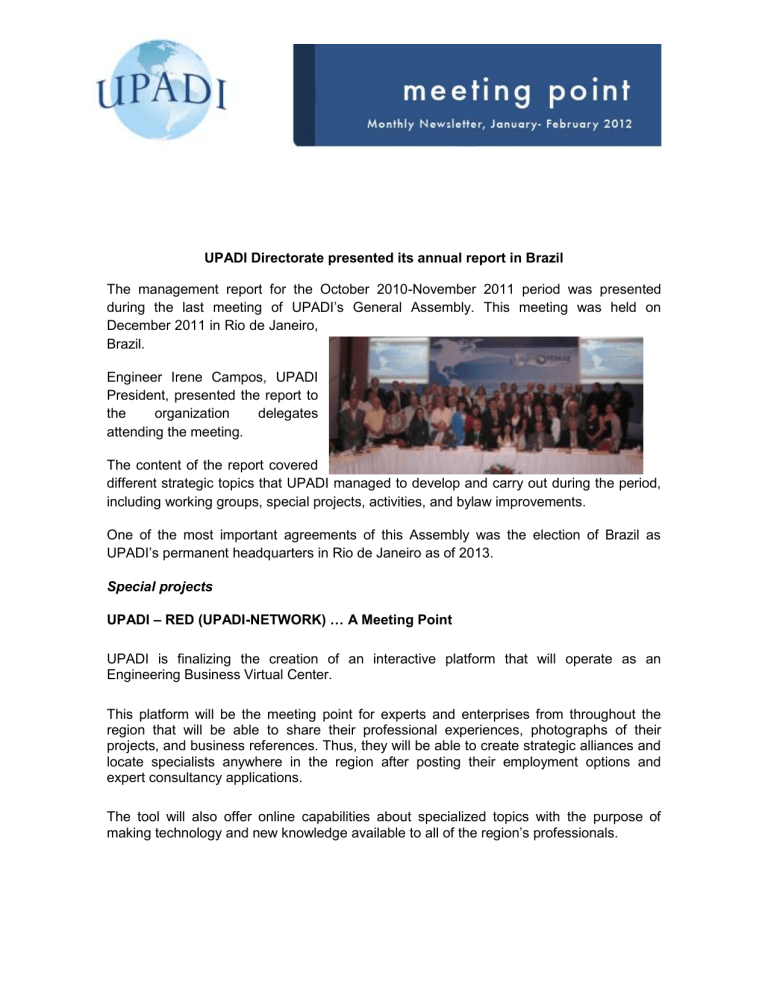
UPADI Directorate presented its annual report in Brazil
The management report for the October 2010-November 2011 period was presented during the last meeting of UPADI’s General Assembly. This meeting was held on
December 2011 in Rio de Janeiro,
Brazil.
Engineer Irene Campos, UPADI
President, presented the report to the organization delegates attending the meeting.
The content of the report covered different strategic topics that UPADI managed to develop and carry out during the period, including working groups, special projects, activities, and bylaw improvements.
One of the most important agreements of this Assembly was the election of Brazil as
UPADI’s permanent headquarters in Rio de Janeiro as of 2013.
Special projects
UPADI – RED (UPADI-NETWORK) … A Meeting Point
UPADI is finalizing the creation of an interactive platform that will operate as an
Engineering Business Virtual Center.
This platform will be the meeting point for experts and enterprises from throughout the region that will be able to share their professional experiences, photographs of their projects, and business references. Thus, they will be able to create strategic alliances and locate specialists anywhere in the region after posting their employment options and expert consultancy applications.
The tool will also offer online capabilities about specialized topics with the purpose of making technology and new knowledge available to all of the region’s professionals.
For UPADI, within a context of professional globalization and mobilization, UPADI-RED
(UPADI-NETWORK) may become a powerful business and learning tool for Pan-American engineers.
The UPADI-RED (UPADI-NETWORK) includes:
Detailed interactive CVs of professionals and companies
Employment clearinghouse: posting and search of employment options
Discussion forums
Instant messaging
Advertising spots
Online course platform
PIEVC Protocol Application
During the 2010-2011 period, a team composed of representatives of Engineers Canada, the Colegio Federado de Ingenieros y de Arquitectos de Costa Rica (CFIA), UPADI, and
WFEO’s Environment and Energy Committees worked on the application of the Protocol for Climate Change Infrastructure Vulnerability Assessment (PIEVC) at the Underwater
Outlet in the province of Limon, Costa Rica.
This was the first project in Central America assessed using the Protocol for Climate
Change Infrastructure Vulnerability Assessment developed by Engineers Canada.
The outlet was visited on March 2011 by authorities of Canada and Costa Rica and a group of professionals.
The objective of this Protocol is to assess the risks that a structure may undergo due to climate changes in order to minimize their impact. An infrastructure to be assessed should contain sufficient weather data about the place where it is located and construction data about the infrastructure being analyzed.
This project was carried out in conjunction with the Instituto Meteorológico Nacional
[National Weather Institute] and the Instituto de Acueductos y Alcantarillados [Water and
Sewer Authority] of Costa Rica.
Thinking of the Americas
Several of UPADI member organizations have joined the “country-project” initiative which consists of preparing technical and thematic documents and recommendations and a
strategic planning proposal and programs related to infrastructure in order for governments to use them as input to guide their public policies in this area.
To date several countries have joined this project, including Thinking of Costa Rica,
Thinking of Brazil, Thinking of Venezuela, Thinking of Cuba, and Thinking of El Salvador.
For next UPADI Convention to he held in Cuba, a forum entitled Thinking of the Americas will be held so that the guest countries that have made some progress on this project may present the specific thematic areas included in their plans.
Working Groups
UPADI Working Groups on Anticorruption, Gender, and Young Engineers achieved important results during the 2010-2011 period. The Anticorruption Working Group met virtually every month and is working on a plan to raise awareness among engineering organizations with regard to the competitive disadvantage caused by corrupt acts and lack of transparency.
Moreover, UPADI signed a cooperation agreement with Global Infrastructure Anti-
Corruption Centre (GIACC), a non-profit organization that provides resources and services to prevent corruption in the infrastructure sector. In August 2011 a first workshop was successfully held during the COPIMERA Congress in Costa Rica.
The presentation entitled “Corruption Prevention in the Infrastructure Sector” was virtually offered on September 5, 2011. The web conference was promoted by UPADI member organizations with the participation of representatives from Honduras, Peru, Guatemala, the Dominican Republican, and Costa Rica. As a result of this first web conference, people from Honduras expressed their interest in organizing a special training workshop in their country with the help of UPADI’s Anticorruption Working Group.
In addition, the Gender Working Group prepared a video with the purpose of promoting and stimulating the disposition and passion for engineering among high-school students.
Female engineers who are members of the Brazil Group also produced a short video that captured the experience of different women engineers working in different engineering branches. The Group prepared a set of tools which can be used in a workshop with highschool students.
Another outstanding working group is the Young Engineers Group which participated in the Youth Forum during the Engineering Congress Argentina 2010 in order to promote the group and invite more young professionals to join them. As a result, more people became interested in learning about their work and goals. So, steps have been taken for it to become an international body for engineering students and young professionals.
At WFEO’s World Congress on Engineering held on September 2011 in Geneva, Engineer
Mario Poveda – a member of UPADI’s group of young engineers – participated in the technical forum “Ethics in Engineering” where issues such as the teaching of engineering and professionals’ responsibilities were discussed.
The Group’s objective is to contribute to the professional growth of young engineers by promoting their incorporation to institutional structures and by developing their leadership skills, labor experience, and their own contribution to the development of their countries, the region, and the world as a whole.
UPADI’s Means of Communication
The novelty in Argentina 2010 was UPADI’s electronic magazine Without Borders which was first published on December 2010. This magazine offers to the continent’s engineers reports about the main development regional projects as well as news and interviews with
PanAmerican engineers about the work of UPADI’s committees.
Furthermore, this year UPADI added a version in Portuguese of its website, so its homepage www.upadisede.org
may now be checked in Portuguese, Spanish, and English.
In addition, the newsletter Meeting Point has continued to be published every month. Two new sections were added during this period to the newsletter: Young Engineers and Pan-
American Arbitration.
To see UPADI’s publication, visit:
December 2010 edition: www.upadisede.org/revista_digital/revista_01.html
August 2011 edition: www.upadisede.org/revista_digital/revista_02.html
Other Activities
UPADI implemented actions to consolidate its strategic position as one of the most important organizations for professional development in the continent. One of them consisted in applying to join the Organization of American States (OAS) as a civil society partner with the purpose of achieving better understanding of the role of engineering.
UPADI’s integration to OAS as a civil society partner will allow providing technical consultancy in the areas of infrastructure, technology, and other services.
